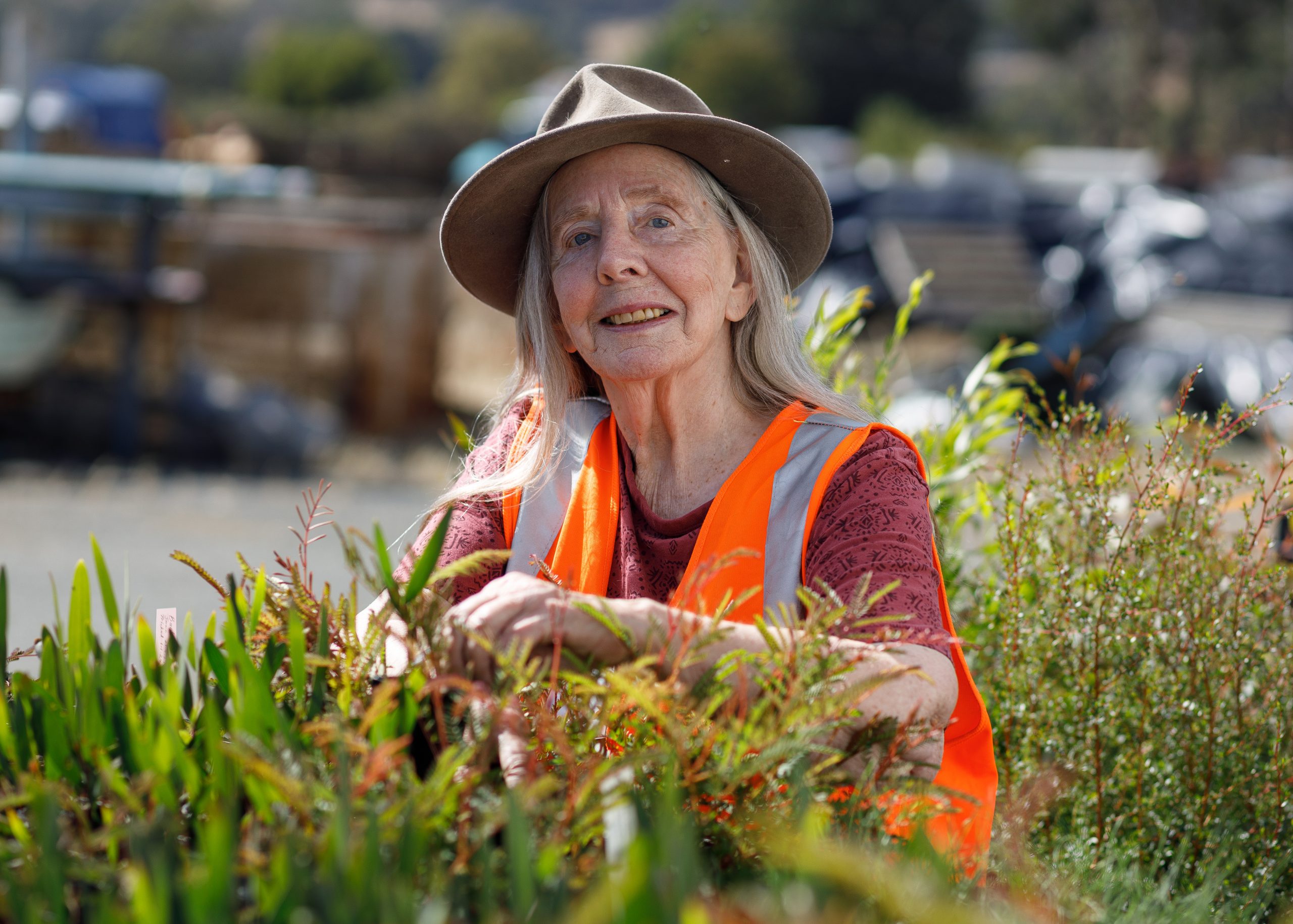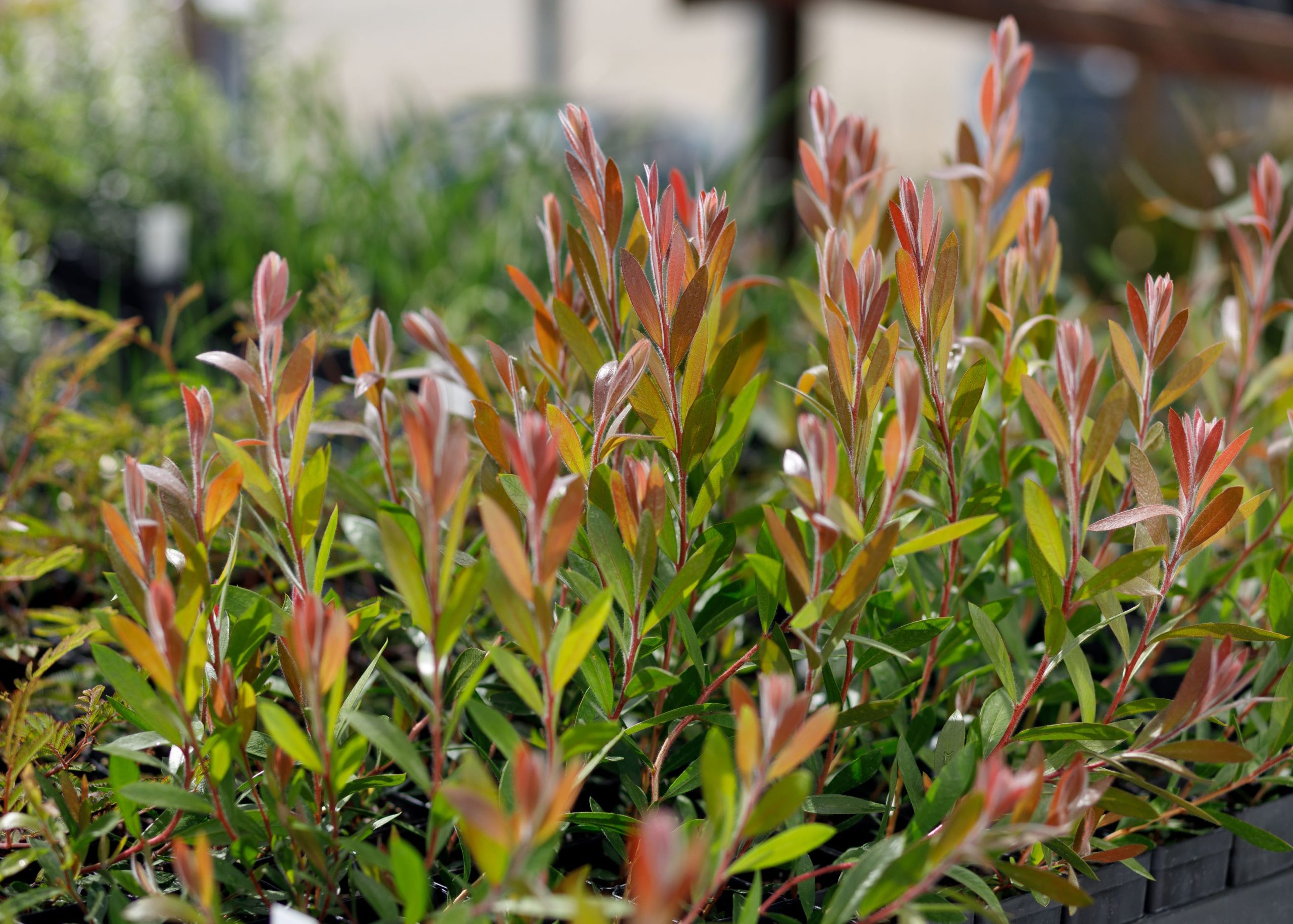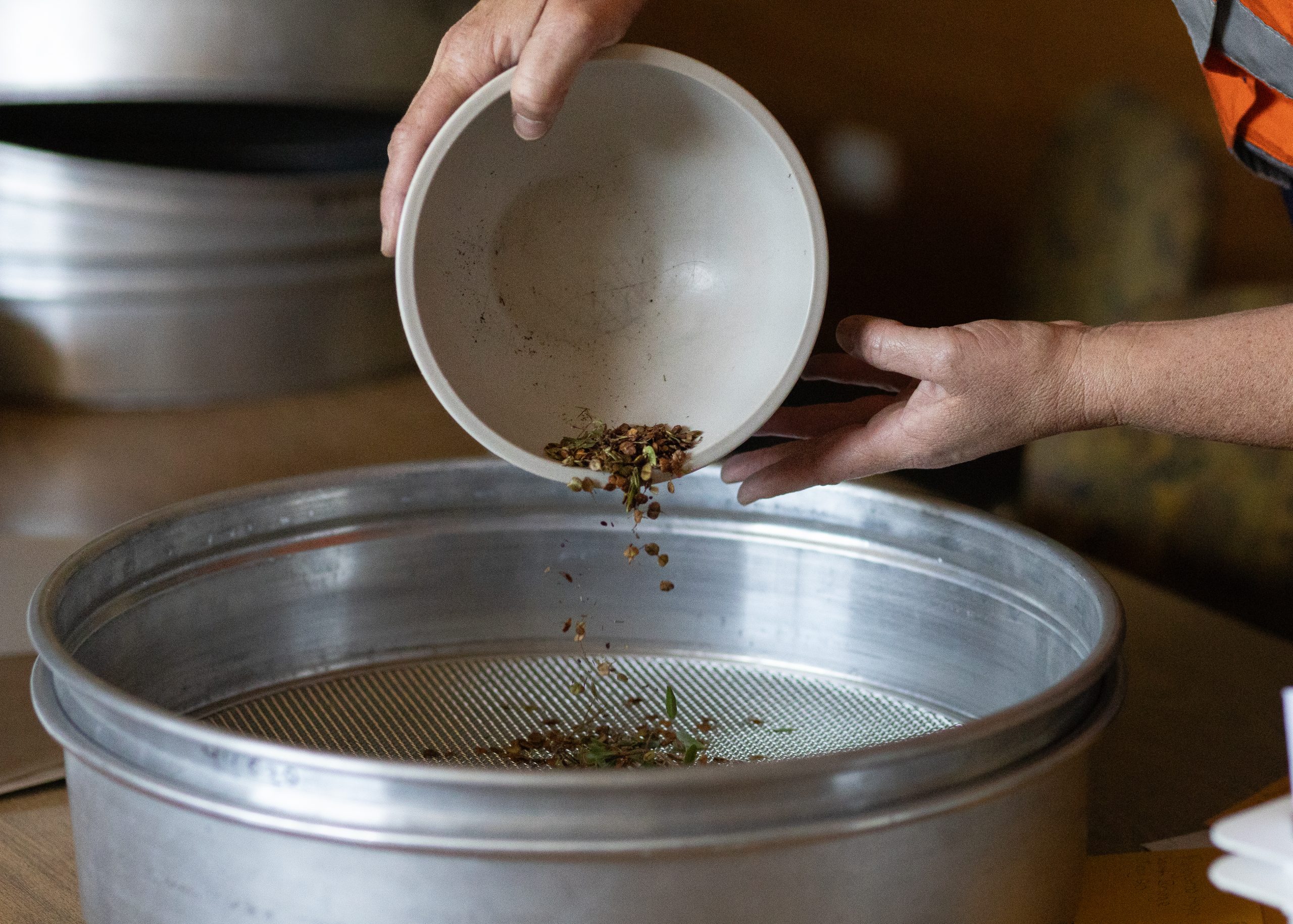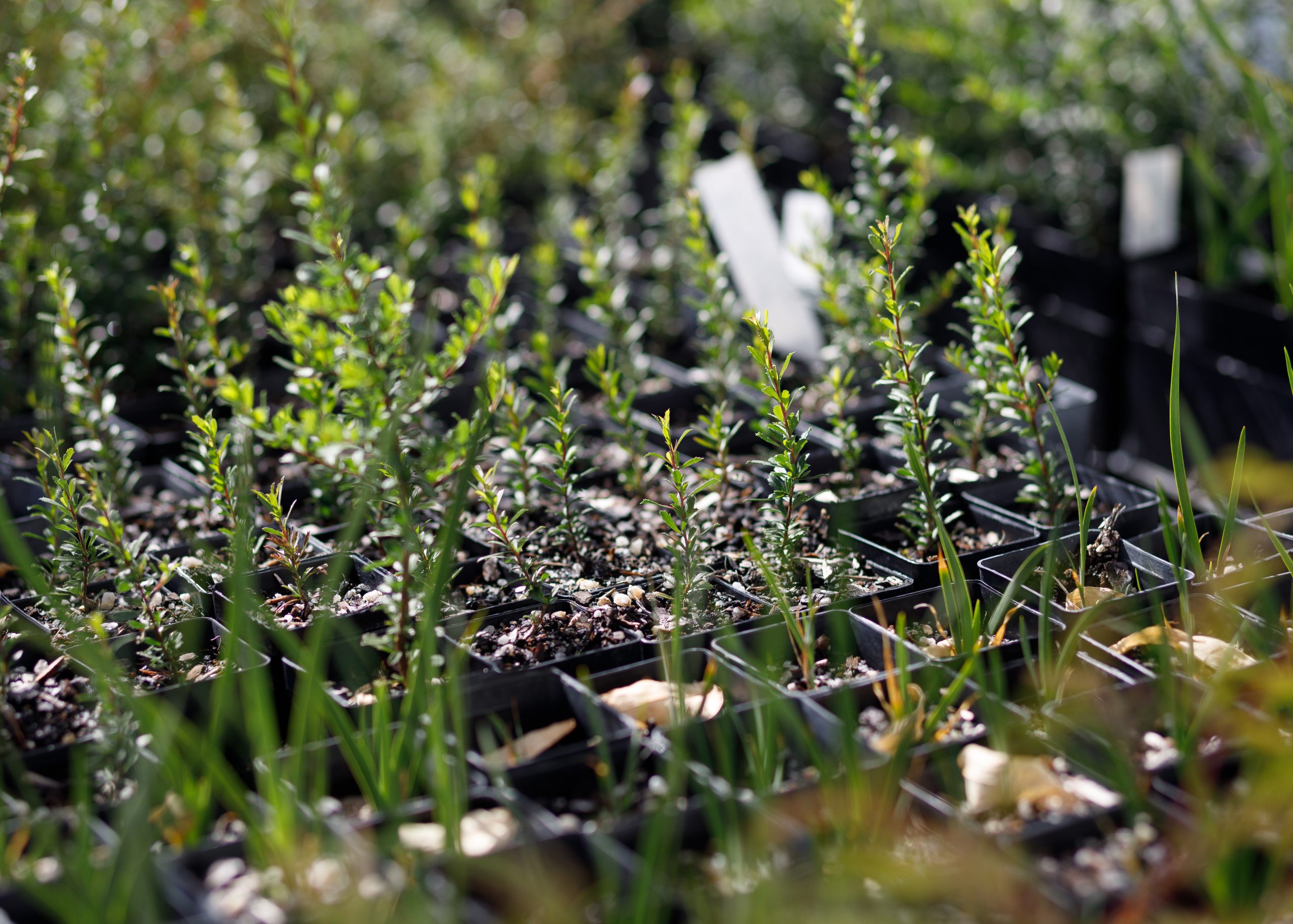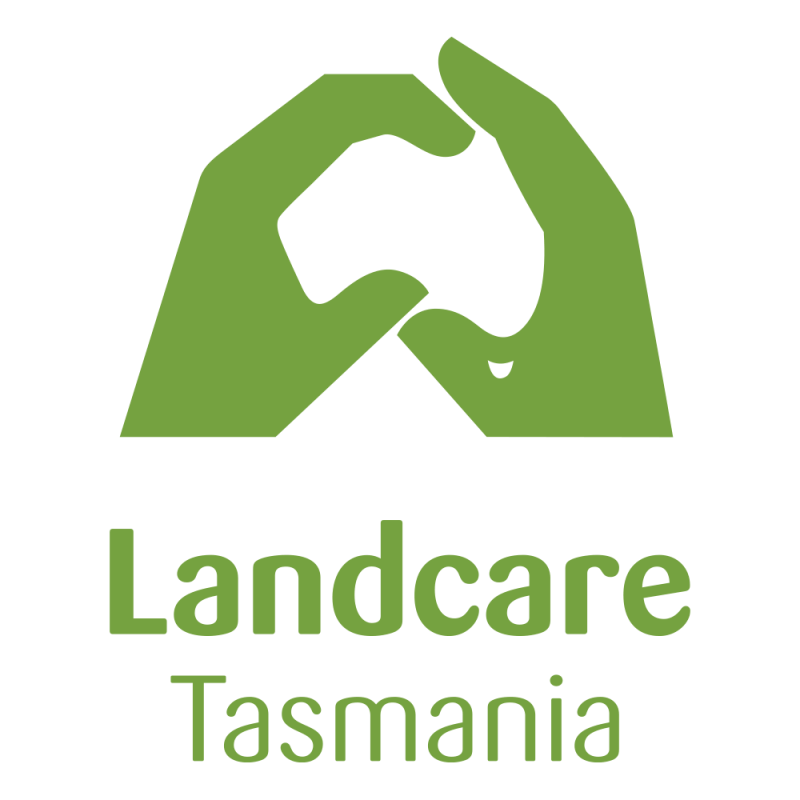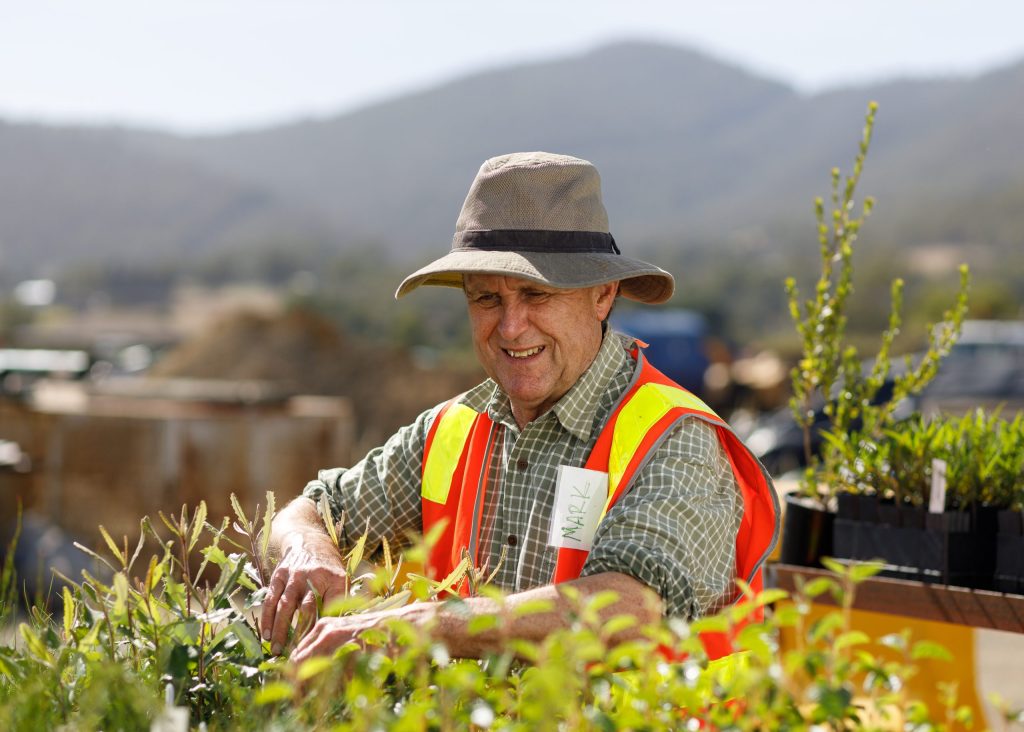
Mark first became involved with Landcare when he moved to a small acreage in Geeveston from the mainland a couple of years ago.
The creek bed in the hay paddock was dry in the summertime, but in winter he noticed it came to life.
“We’ve had platypus in it and they come right to our back door almost which really surprised us,” Mark says.
“So we got in touch with Michelle! We’ve decided to revegetate the creek – fencing it off so cattle can’t get in, only native animals.”
The Michelle he is referring to is our very own Michelle Joy – Natural Resource Management (NRM) Coordinator at the Huon Valley Council. Each year, Council gives away thousands of native seedlings to 38 local Landcare groups and property owners for revegetation projects.
That demand, and a difficulty in sourcing locally-grown plants, has lead to the creation of the Huon Valley Volunteer Landcare Nursery, based at Council’s Huonville depot.
The project came about through a partnership between Council and Landcare Tasmania with additional funding support from the State Government’s Landcare Action Grants.
Volunteers meet at the nursery once a week, tending to the stock and developing new skills such as seed sourcing, collection and propagation.
Mark is also one of those volunteers.
“When you start to collect the seed – you get the amazingly tiny seeds and next minute you get a fantastic array of plants. It’s spectacular!” he says.
“I just wasn’t expecting it, to get a tray full of seedlings that have come up. I never dreamed they would take so well. You get such a good result and it really is satisfying.”
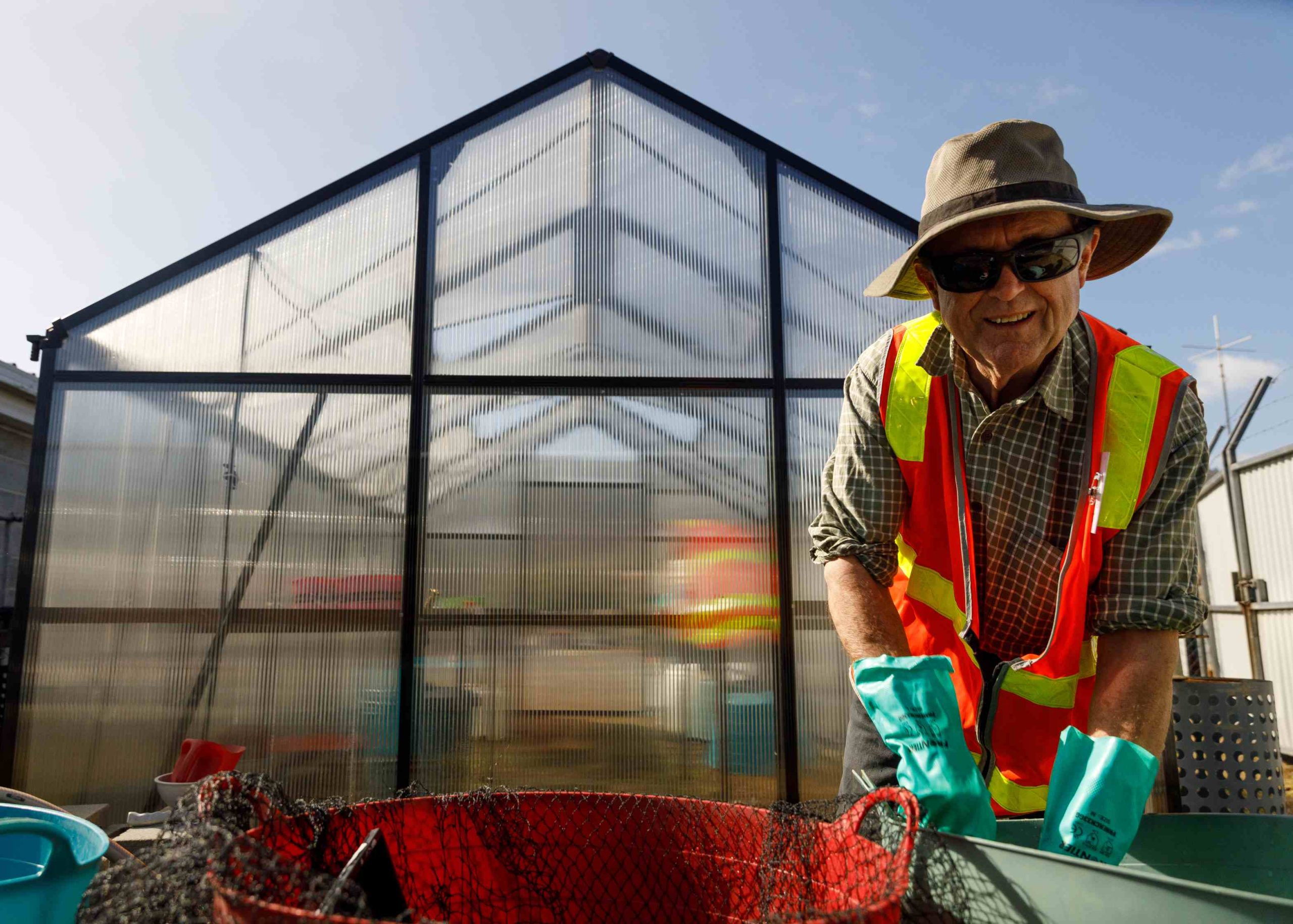
Exceeding expectations
The nursery is only about six months old, but already the results speak for themselves.
Michelle says it has well and truly exceeded expectations.
“We were aiming to propagate two and a half thousand plants in our first year,” Michelle says.
“We’re now up to nearly four thousand! So we have overachieved, which is great. We’re very enthusiastic, we love it.”
Previously, plants for local revegetation projects came from Kingborough Council’s volunteer nursery.
Michelle says its important to have a local option for future environmental resilience.
“Plant species can have a lot of variation depending on where they grow,” she says.
“The different traits that adapt to different environments are important for that plant species’ survival. So the reason we need locally sourced plants is to ensure that we have plants with traits that are adapted to the local environment.”
Revegetation projects can assist with:
- increasing native habitat
- promoting biodiversity
- improved soil and waterway health
- weed management programs
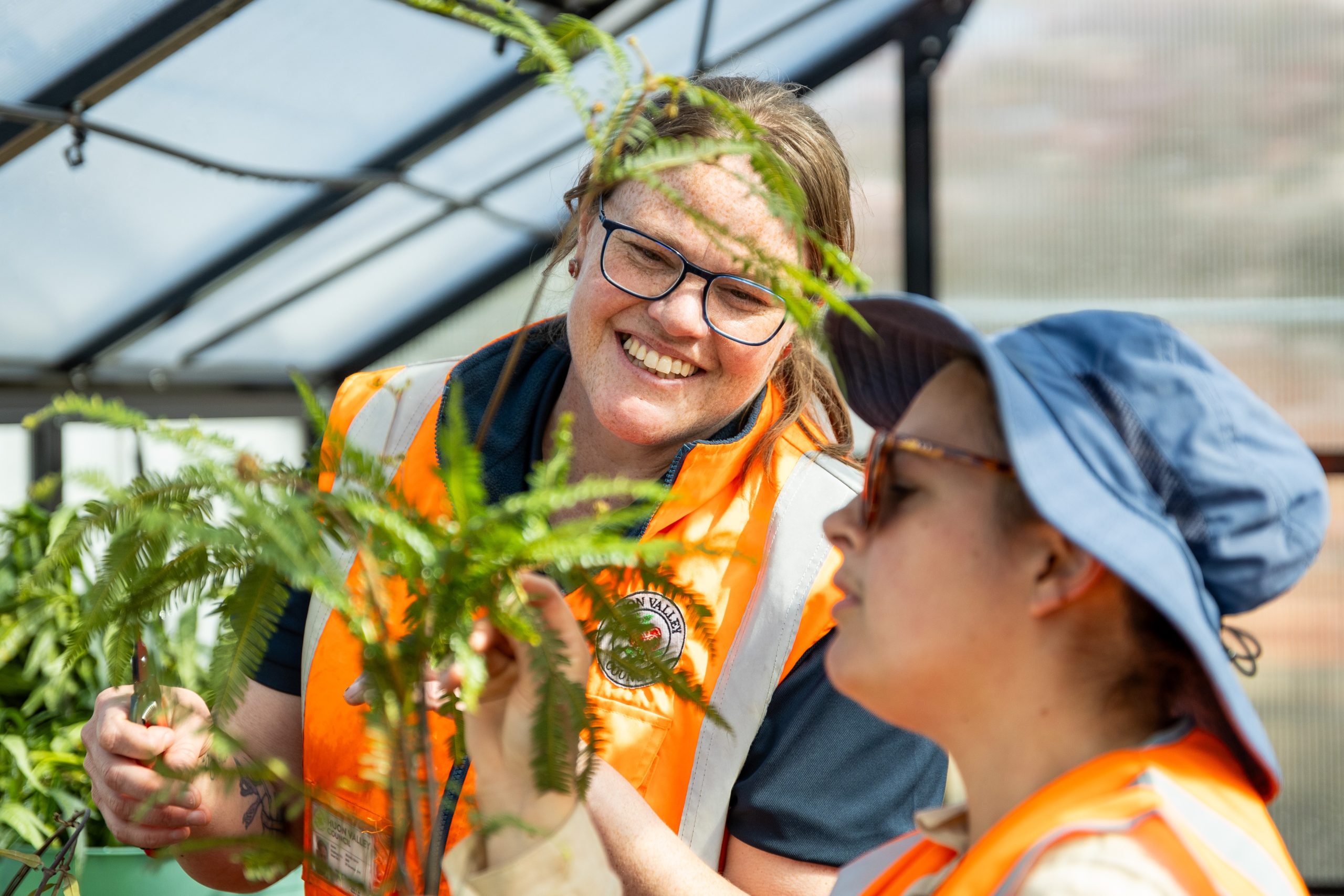
Plants enhance wellbeing
Volunteer Laura has been with the nursery since it opened.
She was motivated by seeing habitat loss, as well as her experience with the Understorey Network and its community outreach programs.
“It’s so exciting to collect not just the main species that you see around, but to try to find plants which are underrepresented and create different habitats for different animals,” Laura says.
“That’s what I’m here for. It heals the soul I think.”
Laura says the nursery has a “great little community” and would-be volunteers should “give it a go!”
“A lot of people feel their mental health is improving from coming here, which is an aspect I hadn’t realised,” she said.
“It’s fabulous.”
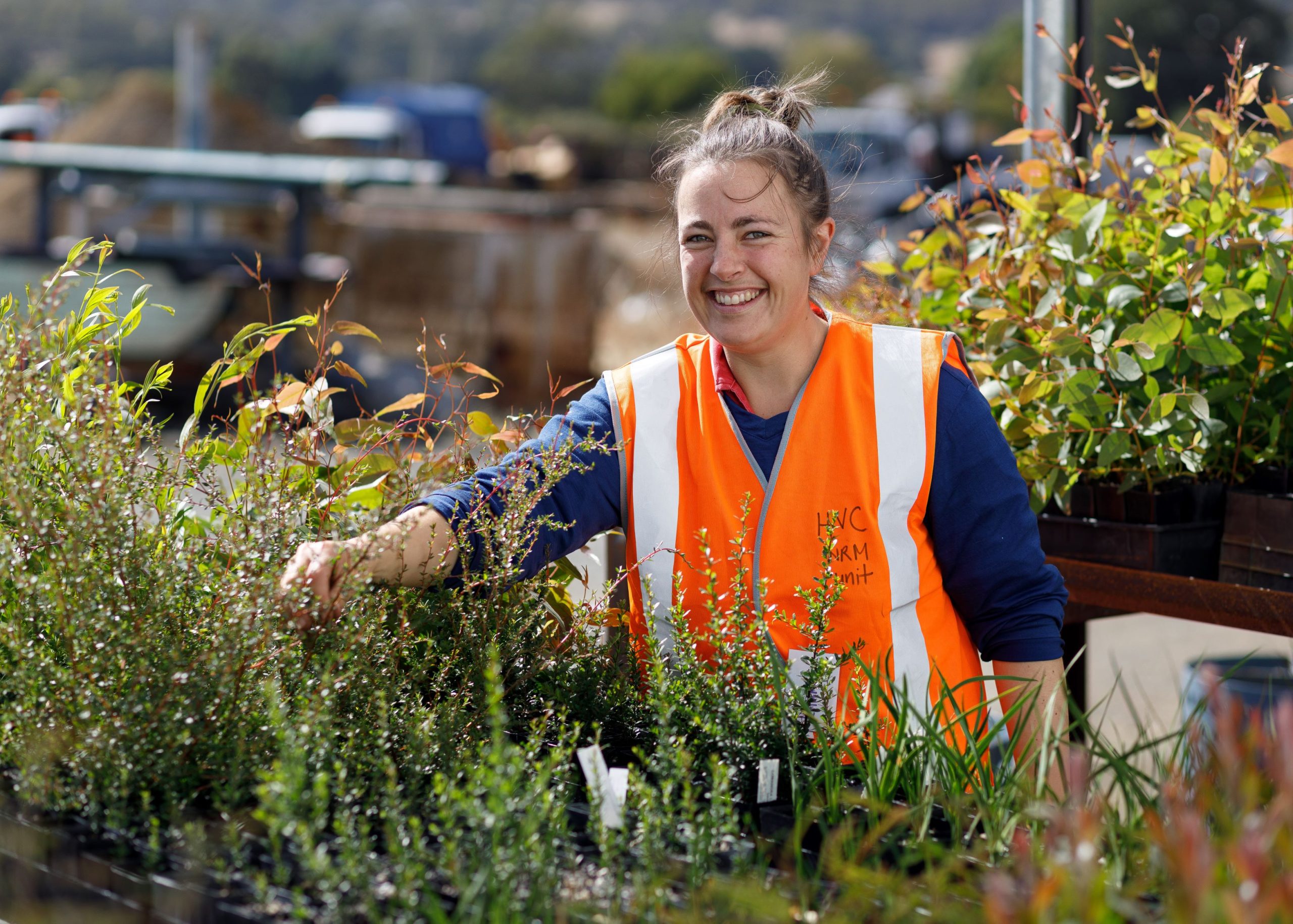
Careful harvest
A seed bank is also being established and new collection sites are regularly identified.
“We go out to Council bushland properties and we’ve recently established our permit to be able to collect off land managed by the Parks and Wildlife Service,” says Michelle.
“We can look at what revegetation projects people are undertaking and we can go out and collect seeds from nearby to ensure they have species suited for their location.”
Michelle says it’s important to note permits are needed to harvest seed on public land and best practice biosecurity is also essential.
“When we’re working in the nursery all of our tools pots and equipment get disinfected,” she says.
“We make sure we only collect from healthy plants, and we take precautions to make sure that we don’t spread weeds and we clean our shoes so we don’t spread soil-borne diseases.”
How to get involved
A revegetation planning workshop is scheduled for later in the year, and plants can be ordered for revegetation projects now.
If you’re interested in getting involved, you can call Council on (03) 6264 0300 and ask for the NRM team, or email nrm@huonvalley.tas.gov.au
If you would like to join a Landcare Group, get online and check out the Landcare Tasmania website to find out which groups are active in your area.
—
The Huon Valley Volunteer Landcare Nursery has been assisted by the nipaluna Nursery in New Town, the Hobart Understorey Network, the Kingborough Council volunteer nursery, and the Silver Banksia Nursery in Margate.
: Steve Alden + Kelly Davis | : Mick Lowenstein
